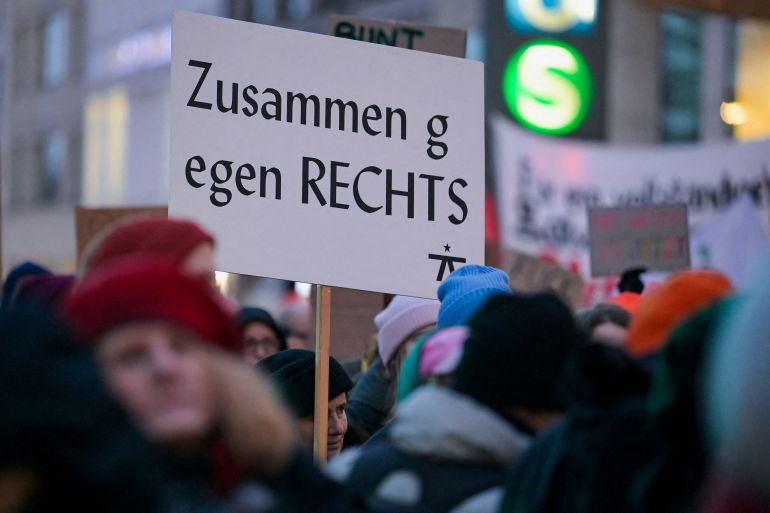Germany repeals little-used fast track citizenship scheme
A survey by German media found that fewer than 1,000 people had applied to the programme.

By Erin Hale and News Agencies
Published On 9 Oct 20259 Oct 2025
Save
Germany has ended a fast-track programme that let highly qualified foreigners apply for citizenship after three years of residence instead of the standard five.
The Bundestag, the German parliament, voted down the measure on Wednesday, according to Germany’s ARD public broadcaster.
Recommended Stories
list of 4 itemsend of list
The programme had only been in place since 2024 and was used by just a few hundred applicants, but it was politically unpopular despite Germany’s declining population.
The vote on Tuesday made good on an election promise from Chancellor Friedrich Merz earlier this year that his centre-right Christian Democratic Union would repeal the fast-track programme.
Interior Minister Alexander Dobrindt said the measure needed to go because it had devalued German citizenship.
“The German passport must be available as recognition for successful integration and not as an incentive for illegal migration,” Dobrindt told reporters on Tuesday.
The repeal was supported by parties like the far-right AfD, the largest opposition party in the Bundestag.
The AfD is well-known for its anti-immigration stance and has previously called for the “mass deportation” of immigrants.
The party was one of the biggest winners in the federal election in February, doubling its number of seats in parliament compared to the last election in 2021.
Ferat Kocak from The Left party told reporters that the German government was making “AfD’s hatred socially acceptable”, according to ARD.
A survey by ARD Capital Studio in July found that just 573 people in Berlin had applied for the fast-track citizenship since 2024, representing just 1.02 percent of all citizenship applications.
Advertisement
Berlin was followed by 78 people in Bavaria and 16 people in Baden-Wurttemberg as of April 2025, according to the survey.
The fast-track programme was included in a series of reforms to German citizenship rules introduced last year by the former chancellor Olaf Scholz. It required applicants to demonstrate high German language proficiency and “proof of being well-integrated into German society”, according to German news outlet DW.
While it was cancelled, other changes made by the Scholz government remain in place.
They include cutting down residency requirements from eight years to five for standard citizenship applications and relaxing rules on dual citizenship, DW said. Citizenship applicants must also show they have mid-level German language skills and the ability to support themselves and their family in Germany.

